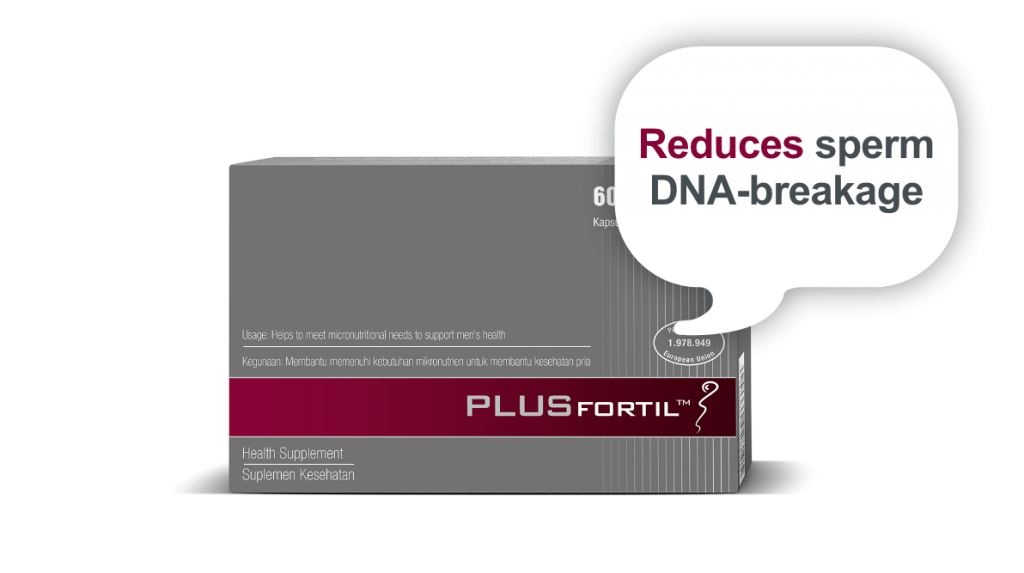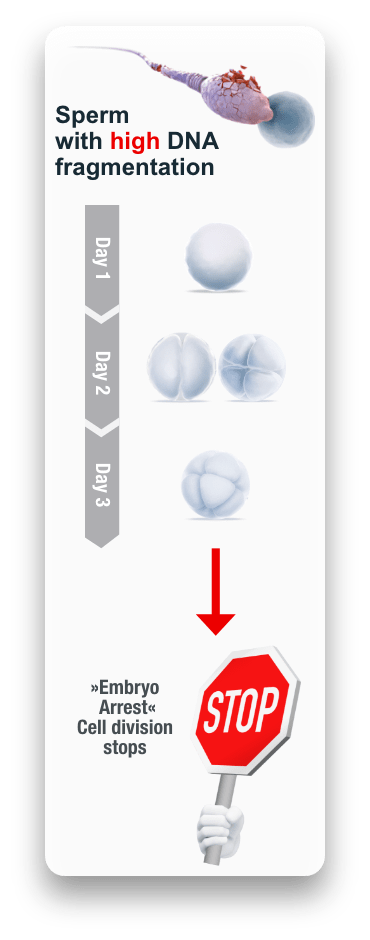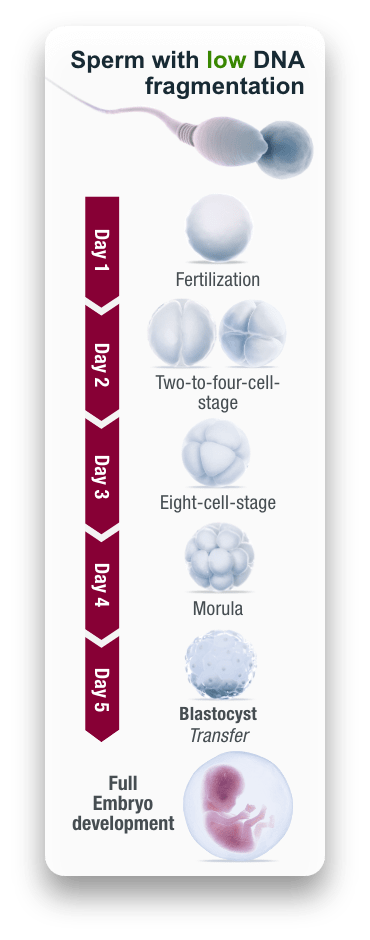
TROUBLE CONCEIVING?
MISCARRIAGE?
HOW IS THE RISK OF MISCARRIAGE RELATED TO DNA-BREAKS IN SPERM CELLS?
Miscarriage (spontaneous abortion) occurs in approximately 10 – 15% of clinical pregnancies. However, the probability of a spontaneous abortion is estimated to be even higher in couples with reduced fertility. Even if the cause is often sought in the woman first, several studies have already shown that there is a significant connection between DNA-damage in sperm cells and miscarriages.
A high proportion of “brittle” or fragmented sperm-DNA can result in embryo arrest, which means that the full development of a healthy embryo is not possible. The risk of increased DNA-fragmentation in sperm cells increases significantly with age – especially starting from 35 years of age. Therefore, it’s not just the woman’s age that matters.

Men can also be the cause of miscarriage.
HOW COME IT’S ON THE MAN?


In the case of severe DNA-breaks in the sperm cell, full embryo development might not be possible. This can ultimately result in a miscarriage.
Robinson et al. Hum Rep 2012:10, 2908-2917; Hachem et al. Int J Womens Health: 2017:9, 331-345.
RECURRENT MISCARRIAGES ARE OFTEN UNEXPLAINED
A miscarriage can be related to breaks in sperm-DNA. Because of this, the man’s sperm health should also be taken into consideration. The intake of PLUSFORTIL® is particularly recommended for men over 35 years of age, as they belong to the risk group for increased DNA-fragmentation.
When a couple experiences three consecutive pregnancy losses, classifying their troubles as ‘recurrent miscarriage’, the psychological strain becomes an ever-present concern. About 2-5% of all couples who want to have children are confronted with this emotional burden. Although medical professionals strive to improve treatment options and reduce the time to successful pregnancy, almost half of all cases still remain without an identifiable cause, thus failing to provide any peace to an already frustrating situation.
This is why it is all the more interesting that recent and extensive studies have shown a significant increase in miscarriages in patients with high levels of fragmented sperm DNA. DNA-breaks in sperm cells could therefore be a possible explanation for a spontaneous abortion, especially for repeated miscarriages.
Two clinical studies with different sperm-DNA test methods have led to the same conclusion:
PLUSFORTIL® reduces DNA-breaks in sperm cells after 3 months of use.

Sources:
Cohen-Bacrie P. et al.; Fertility and Sterility 2009;91(5):1801-5.
Sartorius G.A. et al.; Human Reprod. 2010;16(1):65-79.
Plastira K. et al.; J Assist Reprod Genet. 2007;24(10): 437-443.


